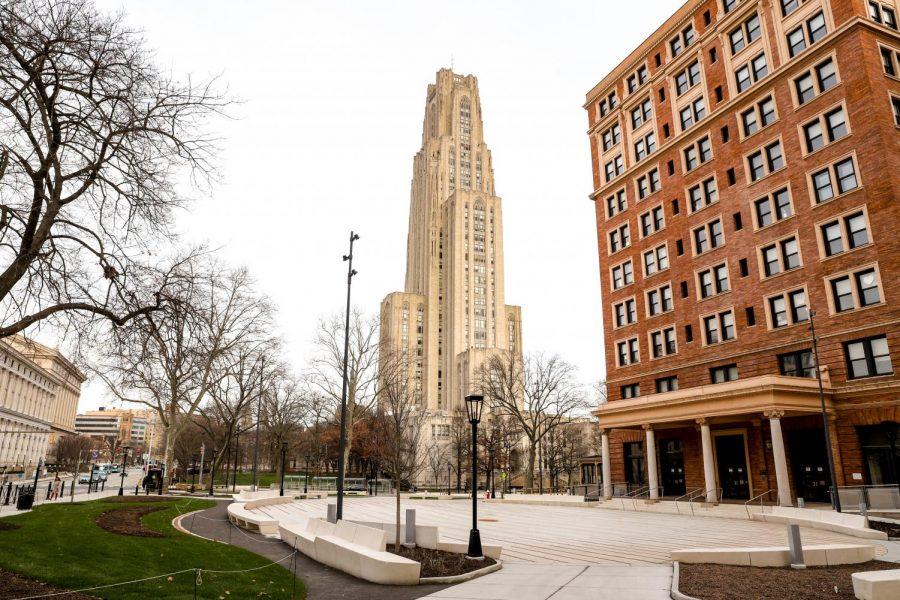Gallagher: Pitt’s in-state tuition discount at risk
Kaycee Orwig | Senior Staff Photographer
The Cathedral of Learning and William Pitt Union on campus.
April 1, 2022
Reduced tuition for in-state Pitt students is at risk, according to Chancellor Patrick Gallagher.
Gallagher sent an email Thursday afternoon urging Pitt community members to take action, and blamed “some House Republicans and a select number of their leadership” for using “unrelated issues as political bargaining chips” to not support the reduced tuition, which is paid for by taxpayers.
“The appropriation bill’s passage is in jeopardy, and more than 21,000 Pitt students and their families could lose this needed tuition support,” Gallagher said.
Jason Gottesman, a spokesperson for the state House Republicans, said Thursday afternoon that the budget process is “in its infancy” and added that “speculation by outside groups and stakeholders” is “not warranted” at this point.
“Discussions continue about funding for all education needs and the final decision about any spending will be made by the caucus and then the body as a whole,” Gottesman said. “As always, we are and will continue to be, supportive of the students and families of Pitt.”
Pitt is one of several state-related universities in Pennsylvania, including Penn State and Temple, that receive funding each year from the state legislature. Funding must receive two-thirds support in both the state House and Senate in order to pass. The state sent Pitt about $151 million last year, which is roughly 6% of the University’s budget, and Gov. Tom Wolf proposed sending 5% more in his next budget.
Chancellor Emeritus Mark Nordenberg has drawn the ire of some Republicans for his role as chair of Pennsylvania’s Legislative Reapportionment Commission, which draws state legislative districts every 10 years following the census.
The maps — recently approved by the state Supreme Court — helped reverse some Republican gerrymandering. Kerry Benninghoff, the state House Republican leader, derided the maps as unconstitutional.



